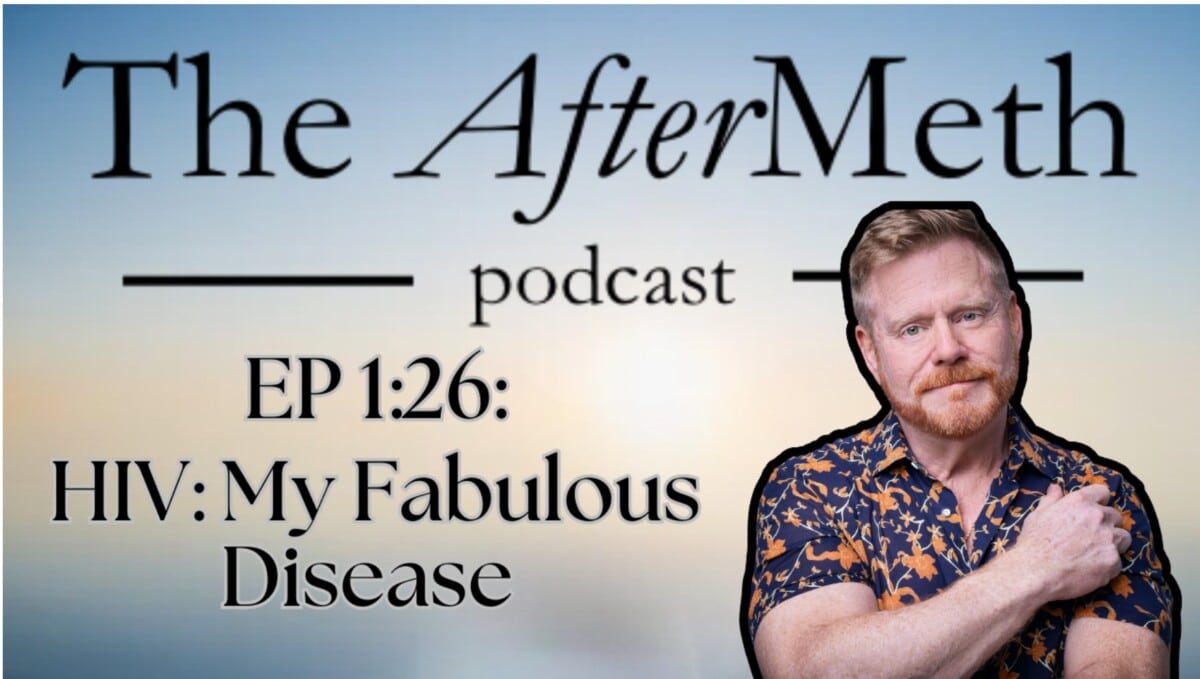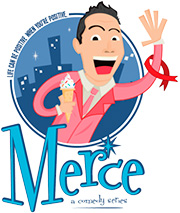Honestly, my meth addiction still haunts me. It intrudes on my waking hours and sneaks seductively into my sexual fantasies. The wounds are deep, even after so many years of my recovery process.
Dr. Dallas Bragg isn’t coy when it comes to addressing these issues. As a gay recovery coach, his social media and video channels are stuffed with conversations about sexual trauma, masturbation, reliving and healing from meth-driven sex, triggers that take us back to addictive thinking, relapse, and rebuilding a healthy sex life in the “aftermeth.”
Dallas does a lot of these video chats shirtless, as if to thumb his nipples at the notion that we cannot be sexual and recovered. Yeah. It’s a lot. And I am here for it.
Or, that is, I went there with him in an interview for his podcast about the intersection of meth, sex, and HIV. We cover most of the bases, including sexual shame, HIV stigma between and among gay men, and the fact that so many gay men are living with HIV as a direct result of meth use. That piles another level of shame onto guys who are trying so hard to crawl out from under it.
Our conversation is below. And I will also include a “study guide” to the conversation that Dallas provides his followers. I would encourage you to follow his social media and, if you or someone you know might benefit from what Dallas is offering, please share and subscribe to his channels.
Thanks for watching, and please be well.
Mark
Podcast Study Guide:
In this episode of The AfterMeth, we are honored to be joined by Mark S. King, where we refer to his latest book, My Fabulous Disease: Chronicles of a Gay Survivor.
Let’s dive in…
The Intersection of HIV, Meth Addiction, and Shame in the Gay Community
Many gay men find themselves caught in a complex web of HIV, meth addiction, and deep-seated shame.
This trifecta can create a vicious cycle, where each element feeds into and amplifies the others. The shame of being gay in a heteronormative society can lead to substance use as a coping mechanism.
Meth use, in turn, can lead to risky sexual behaviors that increase the likelihood of HIV transmission. An HIV diagnosis then often brings its own layer of shame, which may drive further substance use.
It’s a pattern that many find themselves trapped in, struggling to break free.
Reflect on your own experiences or those of people you know. How have you seen these factors intersect and influence each other? What strategies have you found helpful in addressing shame and breaking this cycle?
The Ongoing Stigma and Challenges Faced by People Living with HIV
Despite medical advancements that have made HIV a manageable chronic condition, the stigma surrounding the virus remains pervasive.
Many people living with HIV still face discrimination in their personal relationships, workplaces, and healthcare settings. This stigma can lead to isolation, depression, and reluctance to seek necessary medical care or disclose one’s status to potential partners.
It’s important to recognize that while HIV may no longer be a death sentence, it remains a significant life-altering diagnosis that comes with unique social and emotional challenges.
Think about the last time you heard HIV discussed in your social circles or in the media. What attitudes were expressed? How might these attitudes impact someone living with HIV?
The Importance of Open Dialogue and Education about HIV and Addiction
One of the most powerful tools we have in combating stigma and misinformation is open, honest dialogue.
Many people still hold outdated beliefs about HIV transmission, treatment, and the lives of people with HIV.
Similarly, addiction is often misunderstood and stigmatized, particularly meth addiction within the gay community. By creating spaces for open conversations and sharing accurate, up-to-date information, we can start to break down these harmful misconceptions.
This can lead to greater empathy, better support systems, and ultimately, healthier communities.
Consider your own knowledge about HIV and addiction. Where did most of your information come from? Are there areas where you feel you could benefit from more education?
Recovery from Meth Addiction and Living Positively with HIV
Recovery from meth addiction and learning to live positively with HIV are both challenging journeys, but they’re also journeys of hope and resilience.
Many people have found that these experiences, while difficult, have led them to a deeper understanding of themselves and a greater appreciation for life.
Recovery often involves not just abstaining from substances, but also addressing underlying issues, building healthy coping mechanisms, and creating a supportive community.
Similarly, living positively with HIV involves more than just managing the virus medically; it’s about reclaiming one’s sense of self-worth, navigating relationships, and finding purpose.
If you’re on either of these journeys, what has been most challenging for you? What unexpected positive changes have you experienced?
Responding Compassionately to HIV Disclosure
Learning how to respond compassionately when someone discloses their HIV status is crucial.
Many people’s first instinct is to try to comfort by saying things like “It’s not a death sentence anymore,” but this can feel dismissive of the very real emotions and challenges the person is facing.
Instead, it’s often more helpful to simply listen, validate their feelings, and offer support without trying to “fix” the situation.
Remember that an HIV diagnosis is a significant life event, and it’s okay for the person to need time to process their emotions.
If someone has disclosed their status to you, how did you respond? Looking back, is there anything you wish you had done differently?
Reflective Questions:
- How has stigma around HIV or addiction impacted your life or the lives of people you know?
- What fears or misconceptions do you still hold about HIV? Where do those come from?
- How can we create more open and supportive spaces to discuss HIV and addiction in the LGBTQ+ community?
- What role does shame play in perpetuating cycles of addiction and risky behavior?
- How can allies better support people living with HIV or in recovery from addiction?
Journal Prompts:
- Write about a time you felt stigmatized or judged. How did it impact you?
- Reflect on your journey of self-acceptance. What has helped you embrace all parts of yourself?
- Describe your ideal supportive community. What would it look like and feel like?
- Write a letter to your younger self about love, acceptance and resilience.
- What does “living positively” mean to you, regardless of HIV status?
Action Exercises:
- Research local HIV/AIDS organizations and find one way to get involved or show support.
- Have an open conversation with a friend or family member about HIV to increase awareness.
- Attend an HIV support group or recovery meeting as an ally to better understand lived experiences.
- Write and share your story of overcoming stigma or supporting a loved one.
- Create art, writing or media that promotes HIV education and fights stigma.








